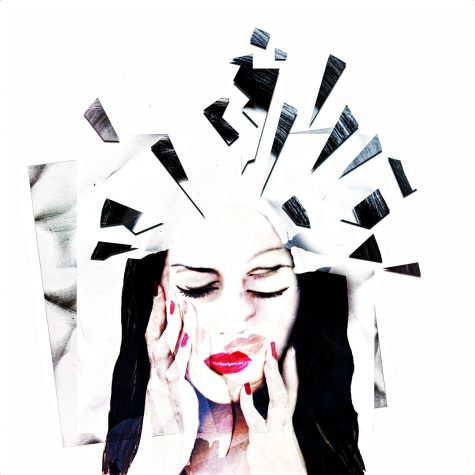Misuse of Medical Terms Abate Seriousness
March 16, 2018

In this photo illustration, it shows how people with mental illnesses might feel when they hear others talk about their disorders flippantly.
According tot the National Alliance on Mental Illness, 42.5 million adult Americans suffer from sort of mental illness. That’s 18.2 percent of the population. Diagnoses range from schizophrenia, to bipolar disorder, to Obsessive Compulsive Disorder, and sometimes a mix of them. Dealing with this is extremely difficult and sometimes it takes a toll on people’s life depending on the severity of their disorder.
Despite this, people still find it comical or useful to use these illnesses in their daily sentences to describe how they feel. It’s common to hear the classics: “The weather is really bipolar,” “I’m so OCD, so things just have to be a certain way,” and “Stop being so psycho.” “My favorite show just ended. I’m going to be so depressed.”
The reality of these mental illnesses is much more harsh and not as simple as these statements make it seem.
Using them as adjectives pushes the stigma surrounding these disorders. It adds to the stereotypes that comes with them. OCD is way more complex than just being a tidy person. Someone could just say that she likes things being clean or that she’s a perfectionist.
Bipolar is more than mood swings; instead, someone can say that the weather has been unpredictable lately. Depression is more than a sadness and instead, someone can just say she’s gonna be down without the show to entertain her.
When people who actually have to deal with disorders such as OCD, depression or bipolar disorder see their problems thrown around in conversations like it’s nothing, it may make them less likely to seek help and take their own problems seriously. It makes their issues seem like a joke. It may make them feel invalidated. It makes the mental illness seem like less than it actually is, which is horrible because nobody actually wants to deal with the actual symptoms and baggage that come with an actual diagnosis.
The worst thing about the usage of mental illness as adjectives is that it spreads misinformation. Mental health and disorders are already misunderstood and this doesn’t help.
People need to make a conscious effort to be considerate next time they think about using these illnesses to describe their day or their personality. Better and more descriptive words could be used to describe what they’re trying to say.

